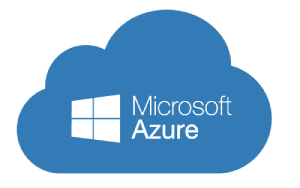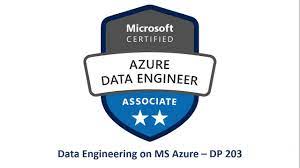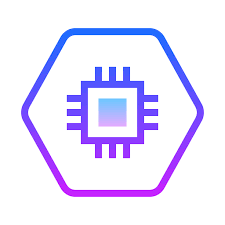Audience
This course is intended for experienced developers who are responsible for managing big data transformations including:
• Extracting, loading, transforming, cleaning, and validating data
• Designing pipelines and architectures for data processing
• Creating and maintaining machine learning and statistical models
• Querying datasets, visualizing query results and creating reports
Prerequisites
To get the most of out of this course, you should have:
Completed Google Cloud Fundamentals: Big Data & Machine Learning course or have equivalent experience
• Basic proficiency with common query language such as SQL
• Experience with data modeling, extract, transform, load activities
• Developing applications using a common programming language such as Python
• Familiarity with Machine Learning and/or statistics
Skills Gained
After completing this course, students will be able to:
• Design a data processing system
• Build and maintain data structures and databases
• Analyze data and enable machine learning
• Optimize data representations, data infrastructure performance, and cost
• Ensure reliability of data processing infrastructure
• Visualize data
• Design secure data processing systems
Course outline
Module 1: Introduction to Data Engineering
• Explore the role of a data engineer
• Analyse data engineering challenges
• Intro to BigQuery
• Data Lakes and Data Warehouses
• Demo: Federated Queries with BigQuery
• Transactional Databases vs Data Warehouses
• Website Demo: Finding PII in your dataset with DLP API
• Partner effectively with other data teams
• Manage data access and governance
• Build production-ready pipelines
• Review GCP customer case study
• Lab: Analysing Data with BigQuery
Module 2: Building a Data Lake
• Introduction to Data Lakes
• Data Storage and ETL options on GCP
• Building a Data Lake using Cloud Storage
• Optional Demo: Optimising cost with Google Cloud Storage classes and Cloud Functions
• Securing Cloud Storage
• Storing All Sorts of Data Types
• Video Demo: Running federated queries on Parquet and ORC files in BigQuery
• Cloud SQL as a relational Data Lake
• Lab: Loading Taxi Data into Cloud SQL
Module 3: Building a Data Warehouse
• The modern data warehouse
• Intro to BigQuery
• Demo: Query TB+ of data in seconds
• Getting Started
• Loading Data
• Video Demo: Querying Cloud SQL from BigQuery
• Lab: Loading Data into BigQuery
• Exploring Schemas
• Demo: Exploring BigQuery Public Datasets with SQL using INFORMATION_SCHEMA
• Schema Design
• Nested and Repeated Fields
• Demo: Nested and repeated fields in BigQuery
• Lab: Working with JSON and Array data in BigQuery
• Optimizing with Partitioning and Clustering
• Demo: Partitioned and Clustered Tables in BigQuery
• Preview: Transforming Batch and Streaming Data
Module 4: Introduction to Building Batch Data Pipelines
• EL, ELT, ETL
• Quality considerations
• How to carry out operations in BigQuery
• Demo: ELT to improve data quality in BigQuery
• Shortcomings
• ETL to solve data quality issues
Module 5: Executing Spark on Cloud Dataproc
• The Hadoop ecosystem
• Running Hadoop on Cloud Dataproc
• GCS instead of HDFS
• Optimising Dataproc
• Lab: Running Apache Spark jobs on Cloud Dataproc
Module 6: Serverless Data Processing with Cloud Dataflow
• Cloud Dataflow
• Why customers value Dataflow
• Dataflow Pipelines
• Lab: A Simple Dataflow Pipeline (Python/Java)
• Lab: MapReduce in Dataflow (Python/Java)
• Lab: Side Inputs (Python/Java)
• Dataflow Templates
• Dataflow SQL
Module 7: Manage Data Pipelines with Cloud Data Fusion and Cloud Composer
• Building Batch Data Pipelines visually with Cloud Data Fusion
• Components
• UI Overview
• Building a Pipeline
• Exploring Data using Wrangler
• Lab: Building and executing a pipeline graph in Cloud Data Fusion
• Orchestrating work between GCP services with Cloud Composer
• Apache Airflow Environment
• DAGs and Operators
• Workflow Scheduling
• Optional Long Demo: Event-triggered Loading of data with Cloud Composer, Cloud Functions, Cloud Storage, and BigQuery
• Monitoring and Logging
• Lab: An Introduction to Cloud Composer
Module 8: Introduction to Processing Streaming Data
• Processing Streaming Data
Module 9: Serverless Messaging with Cloud Pub/Sub
• Cloud Pub/Sub
• Lab: Publish Streaming Data into Pub/Sub
Module 10: Cloud Dataflow Streaming Features
• Cloud Dataflow Streaming Features
• Lab: Streaming Data Pipelines
Module 11: High-Throughput BigQuery and Bigtable Streaming Features
• BigQuery Streaming Features
• Lab: Streaming Analytics and Dashboards
• Cloud Bigtable
• Lab: Streaming Data Pipelines into Bigtable
Module 12: Advanced BigQuery Functionality and Performance
• Analytic Window Functions
• Using With Clauses
• GIS Functions
• Demo: Mapping Fastest Growing Zip Codes with BigQuery GeoViz
• Performance Considerations
• Lab: Optimising your BigQuery Queries for Performance
• Optional Lab: Creating Date-Partitioned Tables in BigQuery
Module 13: Introduction to Analytics and AI
• What is AI?
• From Ad-hoc Data Analysis to Data Driven Decisions
• Options for ML models on GCP
Module 14: Prebuilt ML model APIs for Unstructured Data
• Unstructured Data is Hard
• ML APIs for Enriching Data
• Lab: Using the Natural Language API to Classify Unstructured Text
Module 15: Big Data Analytics with Cloud AI Platform Notebooks
• What is a Notebook
• BigQuery Magic and Ties to Pandas
• Lab: BigQuery in Jupyter Labs on AI Platform
Module 16: Production ML Pipelines with Kubeflow
• Ways to do ML on GCP
• Kubeflow
• AI Hub
• Lab: Running AI models on Kubeflow
Module 17: Custom Model building with SQL in BigQuery ML
• BigQuery ML for Quick Model Building
• Demo: Train a model with BigQuery ML to predict NYC taxi fares
• Supported Models
• Lab Option 1: Predict Bike Trip Duration with a Regression Model in BQML
• Lab Option 2: Movie Recommendations in BigQuery ML
Module 18: Custom Model building with Cloud AutoML
• Why Auto ML?
• Auto ML Vision
• Auto ML NLP
• Auto ML Tables
Schedule
Click on the following link to see the current Course Schedule
Our minimum class-size is 3 for this course.
If there are no scheduled dates for this course, it can be customized to suit the time and skill needs of clients and it can be held online, at a rented location or at your premises.
Click on the following link below to arrange for a custom course: Enquire about a course date









Reviews
There are no reviews yet.